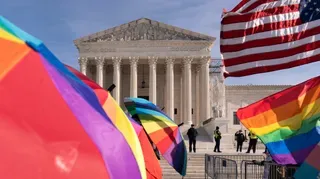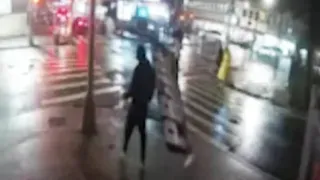February 2, 2012
HIV-Positive Man Who Sued Atlanta Gets New Hearing
Jason St. Amand READ TIME: 2 MIN.
A federal appeals court on Wednesday granted a new hearing to a 40-year-old man who claimed the Atlanta Police Department rejected his job application because he has HIV.
The ruling was a victory for gay rights advocates and the health groups who had closely watched the case, which was brought in 2010 by a man using the pseudonym Richard Roe.
Among other findings, the three-judge panel of the 11th U.S. Circuit Court of Appeals said in the ruling that the city lulled Roe into believing he didn't need to prove his HIV was "non-serious." It ordered the judge who dismissed the lawsuit to take another look at that issue and others prompted by the lawsuit.
The ruling was no surprise, as the panel expressed skepticism about the city's arguments during oral arguments last week, and one judge suggested the court had little choice but to send the case back to the federal judge.
Roe said in an interview last week that he was a former investigator with the city of Los Angeles who discovered he had HIV in 1997. He said the virus didn't hinder his ability to perform his duties, and that he didn't think it would be a problem when he applied to join Atlanta's police force in 2006.
He passed a series of exams, but hit a snag when a blood test revealed he had the virus that causes AIDS. The doctor didn't do any more tests, court records say, and recommended to the city that he have "no physical contact or involvement with individuals." Roe said the doctor told him the city wouldn't hire him because he had the virus.
City attorneys didn't immediately respond to requests for comments. At the hearing, attorneys said the city has no blanket policy against hiring officers with HIV and that several were on the force. City attorney Robert Godfrey said Atlanta follows the advice of physicians who screen candidates, and in this case, the doctor advised the department to limit Roe's interaction with the public.
Lawyers for Roe, who was represented by gay rights group Lambda Legal, said there was no evidence that he posed a threat to the health and safety of others. They said Atlanta's stance perpetuated myths about HIV that have persisted for three decades, and that medical advances have made the virus a chronic, but manageable, condition.
Scott Schoettes of Lambda Legal said he plans to use the hearing to show how Atlanta's refusal to hire his client was "discriminatory and illegal."
"The city of Atlanta admitted that there are already HIV-positive police officers serving on the force," he said. "Now they need to explain why our client should be treated any differently."






